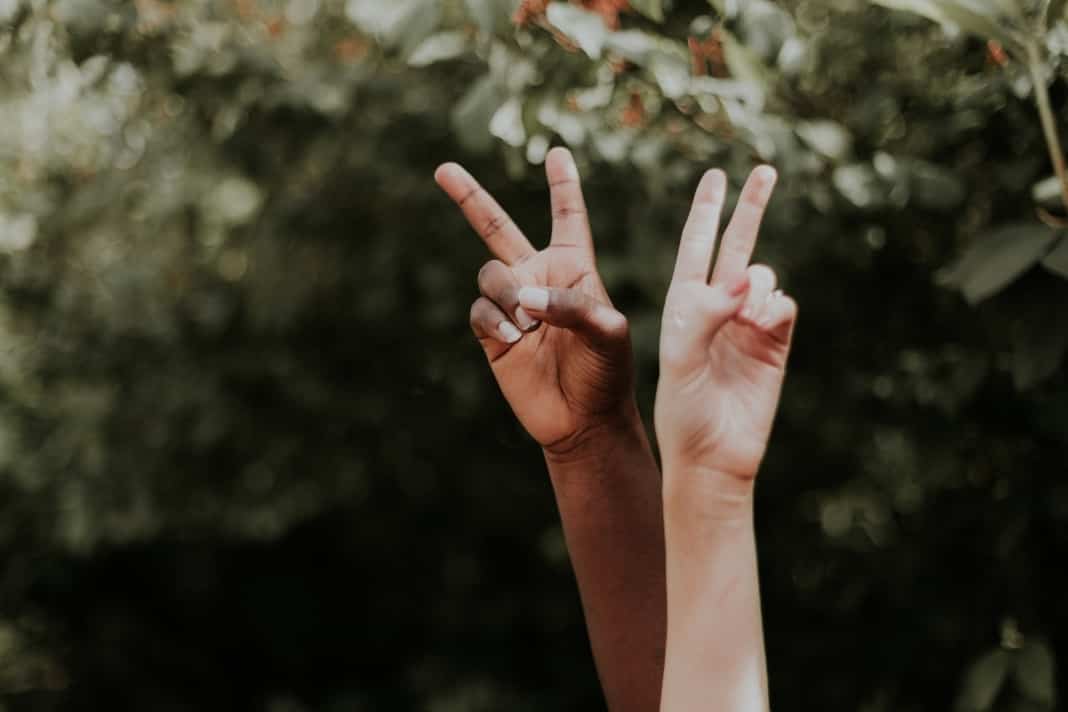Words by Paula Rhone-Adrien
It would be hard for anyone to ignore the news reports referencing ‘Black Lives Matter’ and the protests in support and against the movement. After the alarming killing of George Floyd on 25th May, and the subsequent fury that enveloped thousands of people around the world, you must have had questions yourself about how or why this has all happened? What if you have a child who was also asking you questions? What could you possibly say to explain the anger or hurt that was being beamed into your home?
Racism may just not be an issue for you and so it is hard to talk about something that doesn’t or hardly impacts on your life. So perhaps the first question should be – do you need to talk about what’s currently happening, with your child?
If your child is asking questions because either they have seen or overheard something then please don’t shy away from answering, be brave and tackle the question head on. I say be brave because dealing with this topic can feel like a minefield. Most people worry they will say the wrong thing or use terminology that may be insulting, but remember, it’s ok to answer “I don’t know” to a question, as long as it’s backed up with: “but let’s go and find out!”
If you try to dismiss such a serious topic, your child will sense your uncomfortableness and attempt to rationalise in their own immature mind why mummy/daddy shut them or a topic down. If you give them the impression that there is something to hide, shy away from or be embarrassed about, then that is the impression that they will be left with. This would be wrong, particularly when history tells us that it is those who fail to question or challenge wrongdoing that permits such wrongdoing to fester.
If your child hasn’t raised the topic that doesn’t mean they aren’t aware. Children are being subconsciously taught about society, including race, all the time. In nursery they are taught to describe themselves; their family and their community; they watch TV and will notice subtle differences far more than we give them credit for. Some toddlers will be able to tell you what a ‘girls’ toy is as opposed to a ‘boys’ or that grandma is really old! When you hear a toddler say this, have you ever stopped to wonder who has told them this or why? Moreover, have you ever stopped to ask them why they think this and whether the statement is true? I suspect if you did, you would get a blank stare.
Children don’t understand why the differences they are identifying should create feelings of upset or anger, and this is where you come in. You may find that you need to challenge yourself first about your own views on what you think racism is. How do you express feelings about other races when at home, safely behind closed doors? Do your children, for example, possess literature that references those from other races in a positive light? Do your children’s toys only reflect the inside of their home as opposed to what their community looks like?
Be in no doubt, children are not colourblind and neither is the society in which they live. If you do care about your child understanding and appreciating other races, then take responsibility for ensuring that they receive clear positive messages from you, and that you can reinforce that positive message if they challenge you with a misconceived one.
Racism is not innate, if you are racist you will have been taught to believe that your race is superior to another. This could be because your race is deemed more intelligent, worthy, or important. However, the power to eradicate racism is very real and attainable through education, information and communication.
Racism isn’t just about the tragic loss of George Floyd (or so many others like him). Racist negative stereotyping is just as harmful, it leads certain groups to believe that others should only have particular jobs, that they are deemed as a threat or that it’s ok for them to be treated less favourably because society is suspicious of them. It is just as important to tackle this bias, because in failing to address it, those who suffer the unfair treatment will become disaffected, upset and turn away from the more conventional methods of seeking redress because they can no longer trust in the system. Those protesting the death of Mr Floyd no longer trust that the system will protect them from injustice.
So…. it’s over to you.
Paula Rhone-Adrien is an award-winning barrister. She was awarded ‘Lawyer of the Week’ by The Times and is a trusted BBC Expert. As well as being a mama of four and a very well respected voice at the top of the legal profession Paula is also using her platform to educate people regarding racism.
Paid partnership






COMMENTS ARE OFF THIS POST